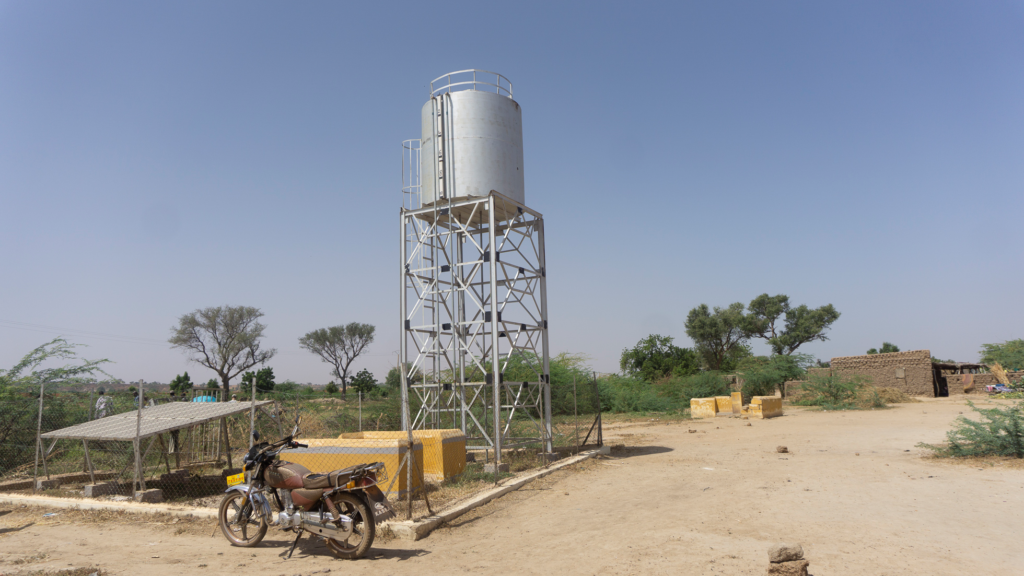Many people in rural areas of sub-Saharan Africa have no access to electricity, clean water or adequate food. To address this problem, the Pan African Cooperation and Educational Technologies (PACET) at United Nations University – Institute for Environment and Human Security (UNU-EHS) started the “Researchers back to the secondary school – Renewable energy powered water-food-economy nexus for the sustainable livelihood at Dosso Region in Niger” (Re-To-Dosso) project in July. The project, which will last for three years, aims at demonstrating that a solar system not only improves water, electricity and food supply, but also strengthens the rural economy and is a worthwhile business model for local investors. Through the project, a pilot solar system will be installed at a village school in Niger’s Dosso region to power a groundwater pump with drinking water treatment, support irrigation and provide electricity to operate village businesses. The site of the project is such that it will inspire young minds to think sustainably, while also promoting sustainable agriculture, rural entrepreneurship and providing much needed clean water and energy to meet basic human needs in rural homes. The project will also set up laboratories for hybrid energy systems and green hydrogen at Abdou Moumouni University of Niamey to encourage and support local research activities in renewable energy.

Recent climate trends and projected climate change in Niger shows an increase in temperature, elevated rate of evaporation, heavy rainfall events and potentially increased rainfall variability, which in the long run will exacerbate the already existing challenges related to floods, droughts and heat waves. Countries in sub-Sahara Africa, including Niger, will be most affected by the changing climatic conditions. There is increasing concern about the resilience of new developments e.g. Water-Energy-Food Nexus systems to emerging threats from climate change and extreme weather. Under the RETO-DOSSO project, UNU-EHS will lead research work on “Climate Change Impacts and Adaptation Measures”, which aims to generate scientific knowledge to inform sustainable design, implementation and adaptation of water, energy, and food (WEF) security interventions under current and future climatic conditions.
Together with UNU-EHS, the project has other scientific partners including Institute for Technology and Resource Management in the tropics and subtropics of the TH Köln which leads the consortium, Center for Development Research of the Rheinische Friedrich-Wilhelms-University Bonn, Research Center Jülich, the Technical University of Munich, the Abdou Moumouni University of Niamey (Niger), the Université des Sciences et des Technologies de Bamako (Mali) and the Pan African University – Institute for Water and Energy Sciences (Algeria). Industrial partners are Wertsicht GmbH, Yandalux Solar GmbH and Foyer-Tech Pvt. Ltd. (Niger).
The project is funded by the Germany Federal Ministry of Education and Research (BMBF) through the “CLIENT II – International Partnerships for Sustainable Innovations” initiative.
